UNIVERSITIES
Southern Cross University Researchers Hunt For The Perfect Coffee
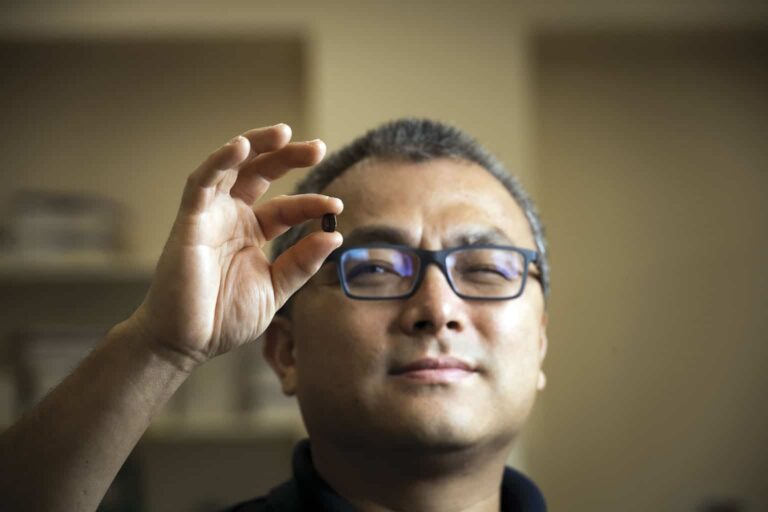
WORDS: Michael Jacobson PHOTOGRAPHY Elise Derwin
Leathery latte, anyone? Petroleum piccolo? How about a skunky short black, a cardboard cappuccino or a mouldy macchiato?
As the saying goes, there’s no accounting for taste, but surely these flavours would not find too much favour in your local cafe.
And yet they are actual descriptions used by Southern Cross University researchers to compile a universal coffee vocabulary, one of several projects underway to improve and expand Australia’s coffee industry.
Just about one per cent of coffee drunk in Australia is actually grown in the world’s smallest continent, despite several zones with suitable climates and a devoted population of coffee drinkers.
With 99 per cent of total coffee consumption from imported beans, mostly from South America, Australia’s caffeine love affair racks up some serious food miles, a significant driver of climate change.
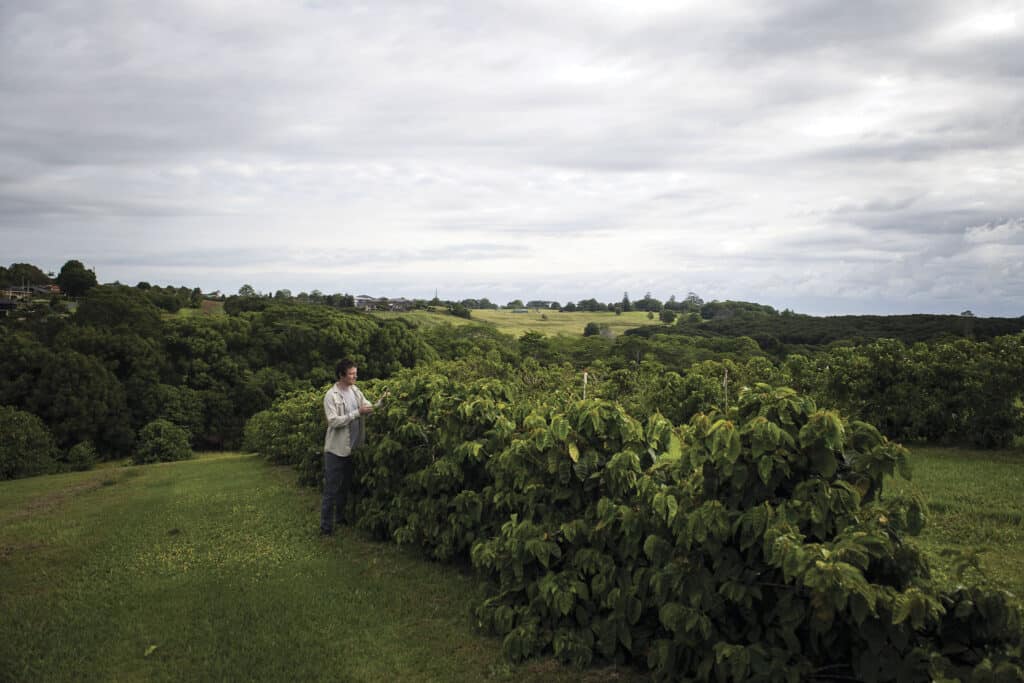
Coffee researcher and scientist Professor Tobias Kretzschmar at a coffee plant trial site in Alstonville.
Southern Cross researchers are on a mission to change that, and to shrink the journey from plant to cup while supporting the development of a sustainable, commercially viable industry.
This year saw the launch of a new cluster of research capability, ‘Harvest to Health’ at Southern Cross University. It brings together the University’s significant strengths in functional foods and natural products, a formidable concentration of research muscle to develop better foods, medicines and outcomes for human health and industry.
Reducing the food miles of Australian coffee is a natural fit for this cluster. Professor Tobias Kretzschmar and Dr Ben Liu are leading efforts at the University to grow coffee, gather data and describe the world’s most beloved bean.
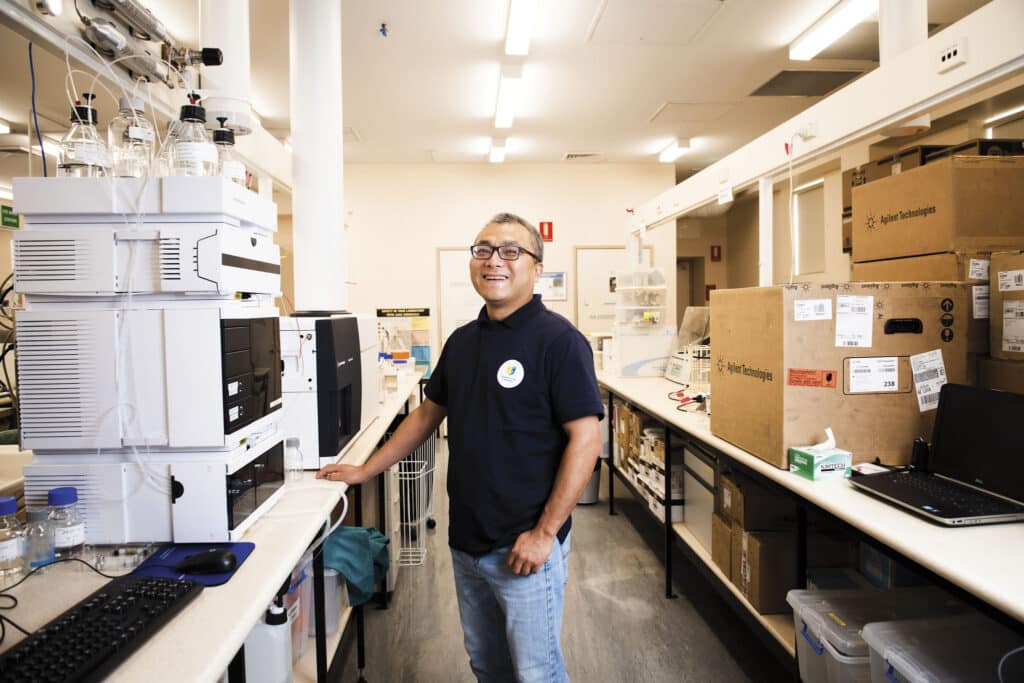
Coffee researcher and scientist Dr Ben Liu in the research lab at the Lismore campus
In one project funded by AgriFutures Australia, Dr Liu is matching the different tastes of coffee to 50,000 chemical markers.
“The aim is to identify and describe the unique sensory attributes of Australian coffee, particularly in relation to terroir, and how these findings relate to the palates of coffee consumers,” said Dr Liu.
Terroir refers to the environmental, varietal and agricultural factors that inform sensory experience. The term is well-known in the wine industry and is becoming increasingly important for coffee.
In June 2022, Dr Liu and colleagues from Southern Cross University’s Faculty of Science and Engineering co-authored a paper on the subject, also developing a colourful sensory character wheel with some surprising mouthfeel and acidity descriptors for coffee like gritty, silky, winey and vinegary.
Fermentation, drying and roasting can also influence the flavour profile. Using data from coffee tasting panels, Dr Liu’s team can match the chemical markers sequenced in the lab to a vocabulary of descriptors, a roadmap for coffee growers and makers to reproduce a flavour profile more accurately.
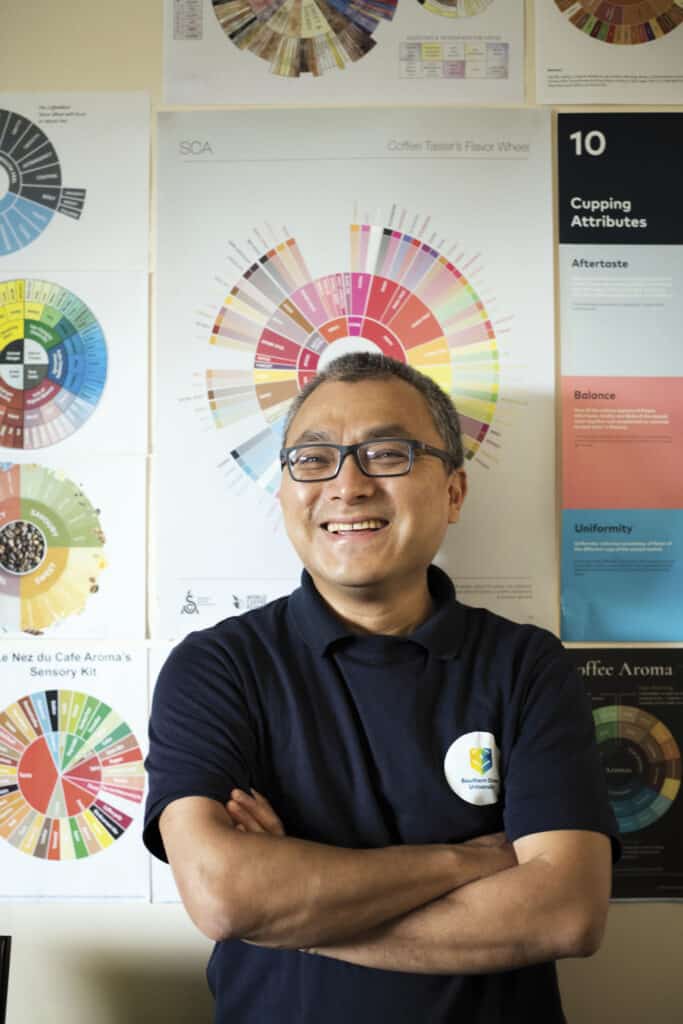
Coffee researcher and scientist Dr Ben Liu in the research lab at the Lismore campus
Professor Kretzschmar said that while coffee is a niche industry in Australia, expansion is being held back by current practice and lack of varietal choice.
“The subtropical Australian coffee industry is based on one imported cultivar, namely the K7 variety of Coffea arabica, which needs constant pruning and this increases labour costs and affects production,” he said.
“While coffee production in Australia is currently restricted to Northern NSW and southern Queensland coastal areas and the Atherton Tablelands, new cultivars, especially if they exhibit some degree of frost tolerance, could expand the range significantly, increasing the industry footprint.”
The good news is that AgriFutures Australia has identified and invested in the growth potential of Australian coffee as an emerging industry.
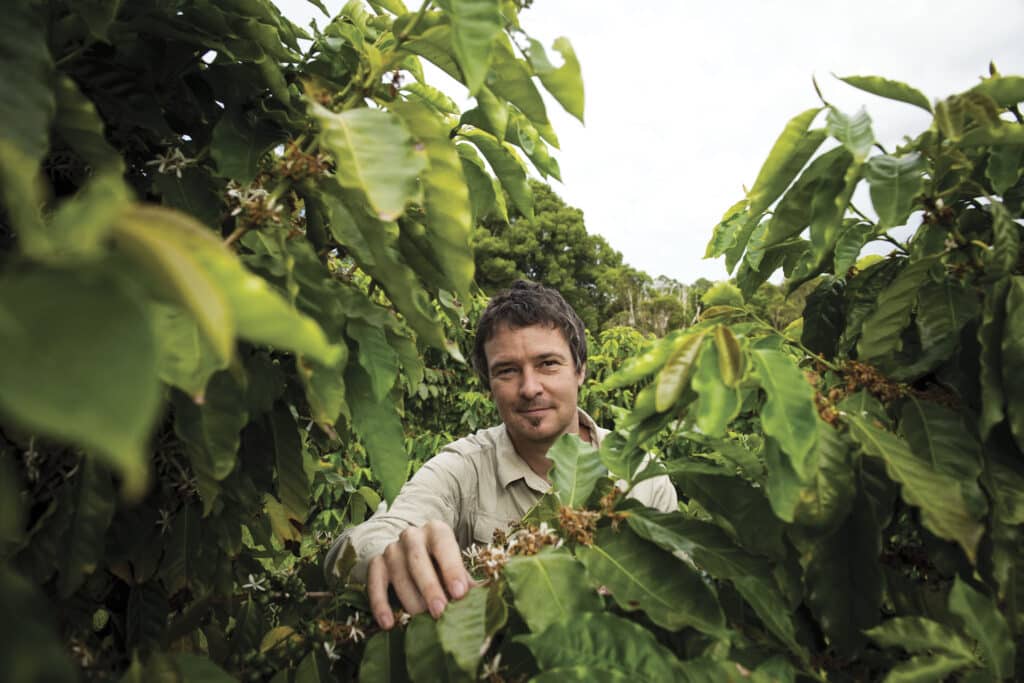
Coffee researcher and scientist Professor Tobias Kretzschmar at a coffee plant trial site in Alstonville.
This includes a partnership with Southern Cross University and the Australian Subtropical Coffee Association to secure access to new coffee cultivars. The University has also partnered with World Coffee Research, which has provided 25 coffee accessions from 10 countries. These are currently being trialled at the University’s coffee site near the Lismore campus in the subtropical northern NSW region and in the tropical highlands of the Atherton Tablelands.
“To attract investment, keep production costs competitive, encourage new growers and in turn grow the industry, Australian growers need access to new cultivars that are suitable to local conditions and which maintain or even improve the quality and flavour of the coffee in your cup. I believe we can do that in a way that is sustainable,” said Professor Kretzschmar.
Transformative ‘harvest to health’ innovation at Southern Cross University
Agriculture and plant science at Southern Cross University are ranked in the highest tier of ‘well above world standard’ in the Excellence in Research for Australia report by the Australian Research Council.
Some of the recent, ground-breaking work at the University has included genomic sequencing of the world’s macadamia species, identifying the gene responsible for aroma in fragrant rice and breeding better commercial varieties of high-value crops like tea tree, black rice and hemp.
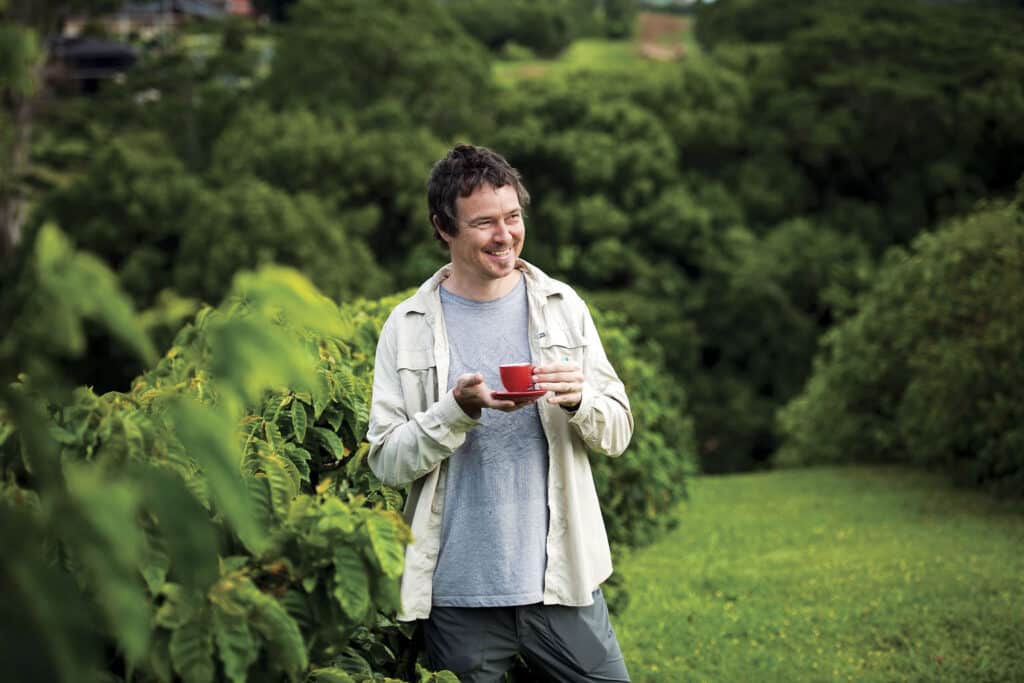
Coffee researcher and scientist Professor Tobias Kretzschmar at a coffee plant trial site in Alstonville.
Professor Kretzschmar also leads a major hempseed project at the University that aims to link genotypes, or the genetic makeup of the plant, to phenotypes – its visual or chemical traits. As with coffee, genetic resource management that responds to commercial demands while reducing food miles is proving a winning combination, not only for emerging industries but for the planet.
Now time for that mouldy macchiato!









